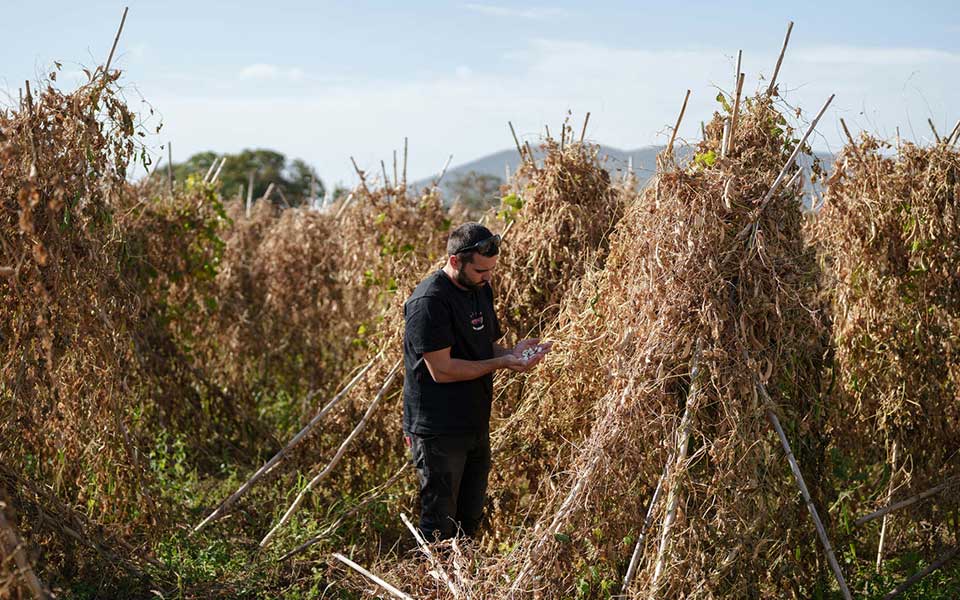Manolis Dimitropoulos and his younger brother Vasilis are third-generation bean producers in Lefkonas, Prespes. The village is located at an elevation of 850 meters east of Small Prespa Lake, just 50 kilometers from the city of Florina. The region, characterized by clay or reddish soil, has long been known for its bean farms, especially those growing PGI (Protected Geographical Indication) elephant beans and large flat beans. Although they both started out as fishermen, Manolis and Vasilis were eventually won over by the bean. Their parents, Evaggelia and Antonis, who were also farmers, were involved in the production of beans exclusively and had managed, through hard work and sacrifice, to acquire triple the five hectares of land that had been bequeathed to them.
In 2017, when Manolis and Vasilis decided to take up bean farming, their goal was to increase production, add new products and eventually turn towards organic farming. Today, their company Prespa Top, which was established in 2021, has 25 hectares of climbing beans; six hectares of bush beans, including black-eyed peas; five hectares of lentils and chickpeas; and a hectare of peppers. In addition, they manage 60-70 tons of beans annually from other producers, and this year they sold their first certified organic beans as well.
INFO
Prespa Top
Lefkonas, Prespes
Tel. (+30) 23850.460.33 & 698.056.1366
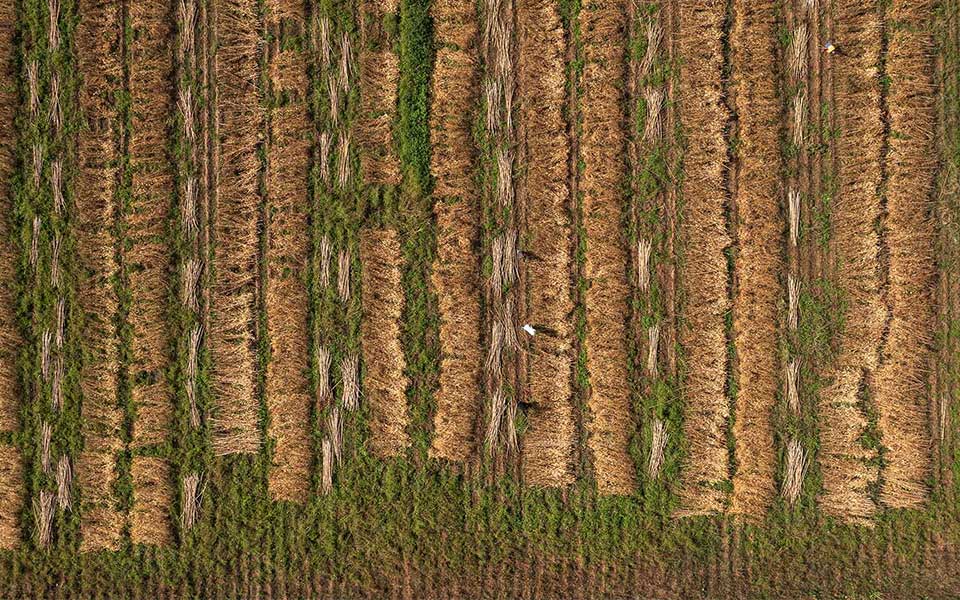
© Konstantinos Tsakalidis/Sooc
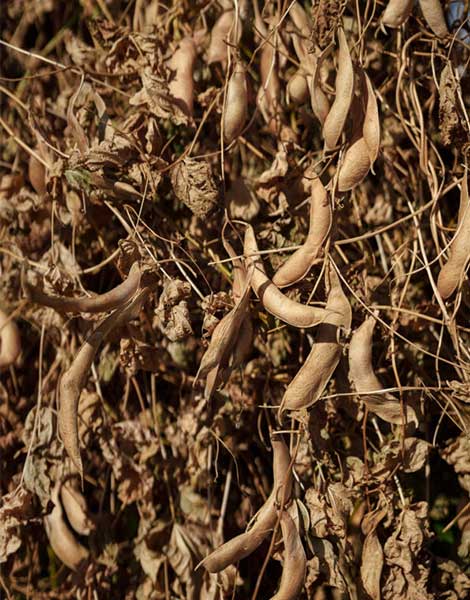
© Konstantinos Tsakalidis/Sooc
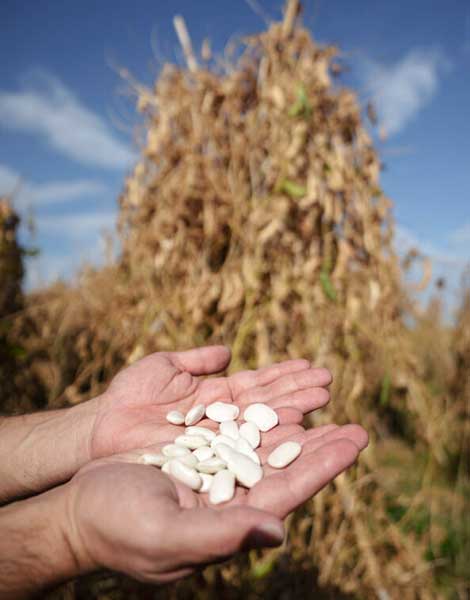
© Konstantinos Tsakalidis/Sooc
Cultivating the beans
“We sell about 90% of our production on the wholesale market, and now we’re trying to set up a retail network that will mainly target delicatessens”, says Manolis, who, against the backdrop of the Prespes National Park, explains what the brothers do. Bean-farming, he points out, requires a great deal of effort. Despite scientific and technological advances, their work remains, to a great extent, manual in nature.
In early May, they sow the seeds and prepare the reeds for the pole trellises, sharpening the reed tips so that they can drive them into the ground. They then dig small channels next to the plants that will help with the irrigation, and in June they erect the reed trellises. About 1,500 sprouts can be planted on one hectare of land; four reeds are used to make a pole trellis, and each trellis supports four plants. “Reeds from the nearby lake aren’t good. They’re too thin. So instead we bring them from Arta, Missolonghi and Giannitsa. We use about 100,000 new reeds every year, and 450,000 in total. They don’t last for more than four years,” says Vasilis.
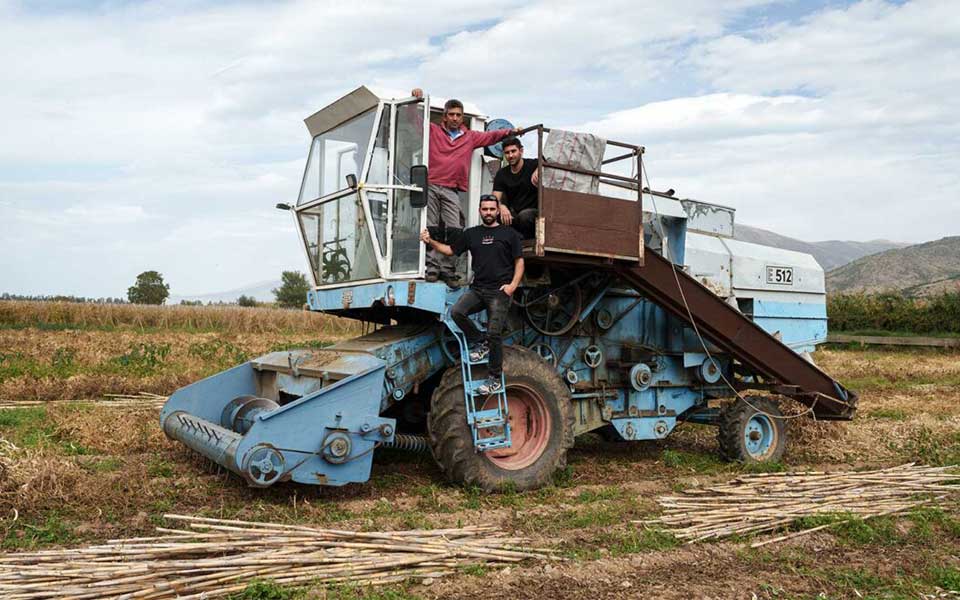
© Konstantinos Tsakalidis/Sooc
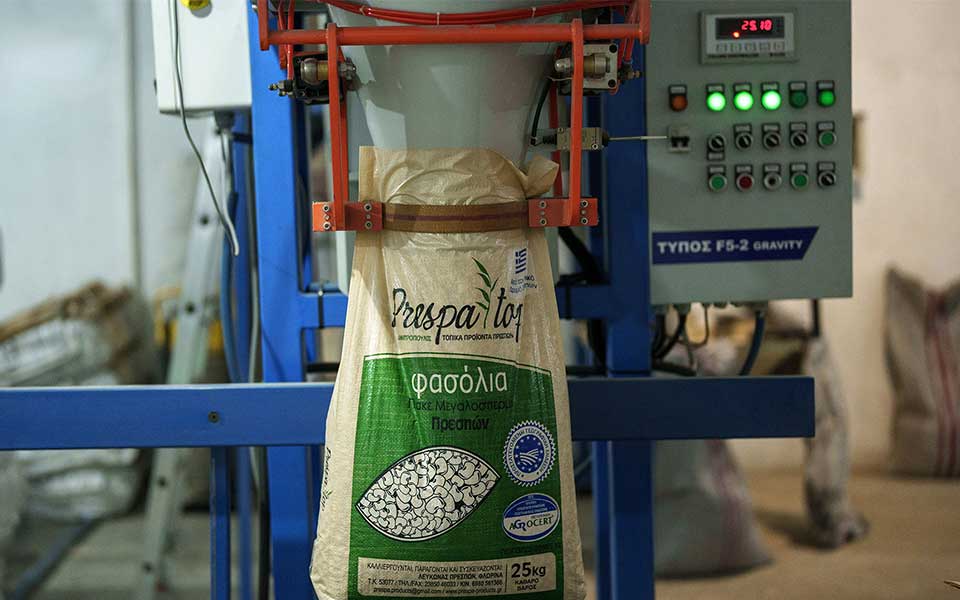
© Konstantinos Tsakalidis/Sooc
After setting up the pole trellises, they remove any weeds or grass around the sprouts by hand. They clear the irrigation channels and wrap the stalks of the beans around the reeds that they’ll climb as they grow. This last step, which is performed three times in the summer, is also the most tiring. In early July, the irrigation process, which lasts until September, begins. If everything goes well, they harvest the beans in late September and leave them out to dry in the field for 20 days so that they can be threshed in October.
An average amount of 3500 kilograms can be produced for every hectare of land. “When beans are adequately watered, they boil faster. The difference in boiling time might be as much as 15 minutes. This is the reason why we package every field separately. If we mixed the beans, some might be soft and mushy while others were still hard,” says Manolis. The brothers are looking to further expand their operations by creating a bean processing unit.
Prespa Top won First Prize at the 16th Gastronomos Quality Awards, organized by Gastronomos, Greece’s leading food magazine and held in December of 2023.
This article was previously published in Greek at gastronomos.gr.

